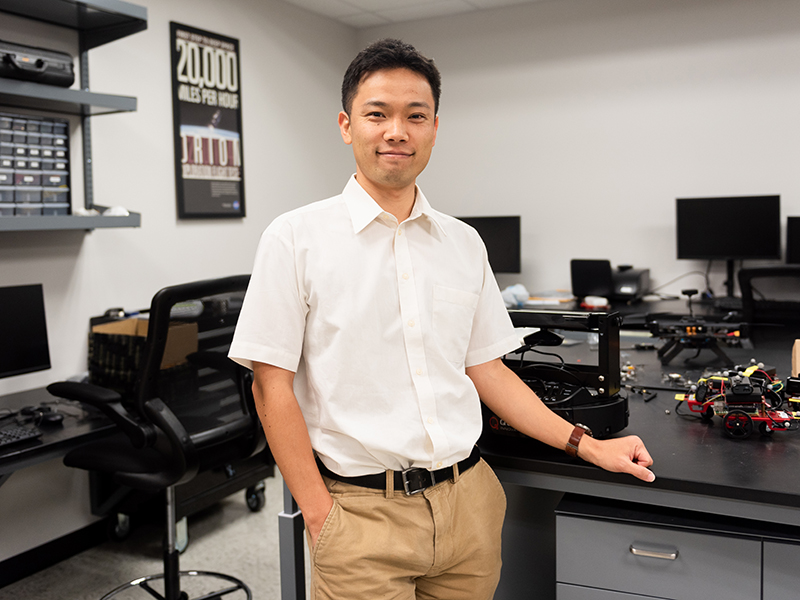Three Texas Engineers Receive National Science Foundation CAREER Awards
Three assistant professors from the Cockrell School of Engineering have been selected by the National Science Foundation (NSF) to receive Faculty Early Career Development (CAREER) Awards. The awards are the NSF’s most prestigious awards in support of early-career faculty and provide up to five years of funding to junior faculty who exemplify the role of teacher-scholars through outstanding research, excellent education and the integration of education and research within the context of their organizations’ missions.
Jean Anne Incorvia

Jean Anne Incorvia, associate professor in the Cockrell School of Engineering’s Chandra Family Department of Electrical and Computer Engineering
Jean Anne Incorvia, assistant professor in the Department of Electrical and Computer Engineering, was awarded for her project Capturing Biological Behavior in Three-Terminal Magnetic Tunnel Junction Synapses and Neurons for Fully Spintronic Neuromorphic Computing. Brain-inspired computing is a revolution in computing that is already seeing applications in a myriad of areas, from image recognition to developing learning rules that allow computers to intelligently process big data sets. Incorvia will model, build and measure three-terminal magnetic tunnel junction devices that can, as closely as possible, capture the biological behavior of the brain. Her project aims to understand the biological behavior by working with neuroscientists; map the biological behavior onto magnetic properties; develop and simulate the device; fabricate and test the device; and then measure the switching energy and probability in comparison to biology and other artificial neurons and synapses (e.g. silicon and other resistive memories).
Read more about Jean Anne Incorvia’s award and research from the ECE department’s award announcement.

Polina Sela, assistant professor in the Department of Civil, Architectural and Environmental Engineering
Polina Sela
Polina Sela, assistant professor in the Department of Civil, Architectural and Environmental Engineering, was awarded for her project Predictive Estimation for Managing Water Distribution Systems and Applications of Distributed Sensing Technologies. Sela will develop state estimation and predictive models that integrate the increasingly available digital information collected by distributed sensing devices. The models will provide a better estimation of a system’s operation under uncertainty, and the outcomes of this research will support current decision-making processes to advance water systems. Future outreach activities include engaging with stakeholders from water utilities and local agencies and tech and consulting companies to identify and present practical solutions for technology adaptation.
Takashi Tanaka

Takashi Tanaka, assistant professor in the Department of Aerospace Engineering and Engineering Mechanics
Takashi Tanaka, assistant professor in the Department of Aerospace Engineering and Engineering Mechanics, was awarded for his project Directed Information Theory for Networked Control Systems in Big Data Regime. Tanaka will take on what he and his team consider to be the top three challenges within AI-based Networked Control Systems, or NCSs, which provide a mathematical foundation and design principles for large-scale infrastructure systems, such as transportation networks and power systems; the challenges are: incorporating extremely large data sets within the existing network, accommodating multiple users within limited network resources, and developing these systems in a way that ensures security and privacy.
Read more about Takashi Tanaka’s award and research from his ASE/EM department’s award announcement.
